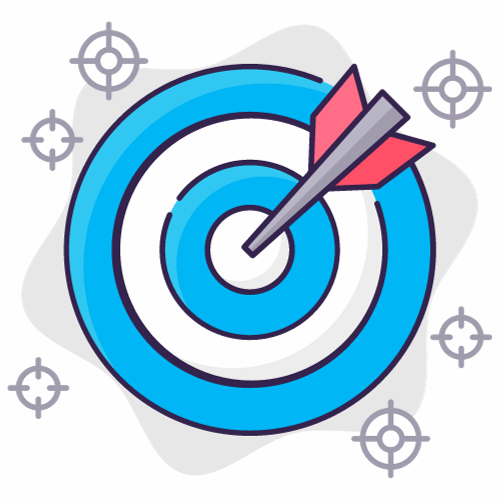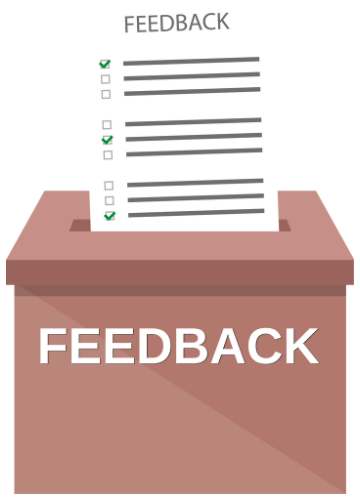When setting professional goals, you might run into the following questions:
- What do you personally want to achieve?
- What would benefit your career the most?
- How to set challenging yet achievable goals?
- How can you make a difference without burning out?
You might not know where to start or how to set effective goals. But you do understand that professional goals matter.
Having goals for your career shows that you’re engaged at work.
But more importantly, professional development goals provide direction, increase focus, and empower you to achieve your career aspirations.
You see, all successful people have professional goals.
In this article, you’ll learn how to set effective work goals. And we’ll cover examples of professional goals to inspire you to set your own.
So let’s dive in!
- What are professional goals?
- How to set effective career goals?
- Why are professional development goals important?
- 4 Work goal categories for professional growth
- 20 Examples of professional goals
What are professional goals?
Professional goals are the specific objectives you set to advance your career and achieve success in your profession. Such goals typically relate to skill development, professional performance, and career aspirations.

Examples include learning high-income skills, finding meaningful work, climbing the corporate ladder, and earning a higher salary.
Career path objectives can be split into long- and short-term goals.
Long-term goals reflect your ambitious professional aspirations. Short-term goals are more tactical and ideally align with your greatest ambitions, the overall business goals, and your team’s objectives.
Do you feel lost?
Take this free personality test to uncover your personal blueprint for success and happiness. Within minutes, you gain insights into your personality and strengths, allowing you to set better goals, experience more joy, and feel fulfilled.
Unlock your inner secrets today
How to set effective career goals?
You might have heard of SMART goals.
SMART is the golden standard in goal-setting. And it’s important to follow this principle if you want to set the most effective work goals.
Here’s how SMART applies to goals for your career:
- Specific: When your boss, manager, or team reads your goal, they should immediately understand what you’re trying to achieve. Bonus points if they also understand how it relates to the team and business.
- Measurable: Measurable goals enable you, your manager, and your team to track your progress. This element raises a sense of personal accountability, increasing your ability to persevere through obstacles.
- Achievable: Do you have the knowledge and skills to achieve your objective? If not, is there enough time within the goal to develop them? Self-belief is an important trait that affects your willingness to pursue the goal and persist through challenges.
- Relevant: Is your work goal interesting to you? And does it relate to your career aspirations? Avoid setting goals for the sake of goal-setting. Instead, wonder what’s important and set goals that matter to you. Also, set goals that are relevant to the business to gain continuous support from the management team.
- Timely: Goals are merely wishes without the element of time. Set deadlines that are challenging yet achievable. Finding this perfect balance takes deliberate practice, but it’s worth mastering.

A professional goal example is to learn about AI. While it’s a beneficial objective for many businesses, it’s not SMART. An improved version is to finish all 18 sections of the AI Fundamentals course within 6 months.
Make sure you set SMART goals.
And here’s a little secret to faster advance in your company: Align your goals with your team’s and business objectives.
Weaving your professional development goals into your company and team’s business objectives benefits everyone included. And it’s a powerful tip for rapid career advancement.
Why are professional development goals important?
Work goals provide direction and enable you to advance in your career in a meaningful way. Here’s why professional development goals matter:
- Establish a clear direction: Professional goals clarify what you are working towards and why. This improves focus and motivation. And it helps your team understand what you’re moving toward too.
- Achieve your career aspirations: Most people have ambitious desires but struggle to identify how to achieve them. Goals help you to break up complex objectives into smaller, more manageable steps.
- Stay on track: Measuring your progress helps you to stay on track. And seeing the progress you make boosts motivation and confidence.
- Become accountable: Setting goals involves commitment, taking risks, and standing for something. And I was more willing to push through fear, knowing my team and manager were watching my goal progress.
- Better opportunities: I lost job opportunities during interviews when I struggled to clarify what I wanted to achieve. But once I set clear goals, people knew how they could help me out. As a result, I landed jobs more easily and better opportunities presented themselves to me.
- Become competitive in the job market: Most people go with the flow and dabble around. And setting professional goals immediately makes you stand out from the crowd. This reason alone may impress someone and provide an opportunity to work at your dream job.
The benefits above are merely the main benefits of professional goals. And there are many other benefits of goal-setting. The main takeaway is to set work goals if you want to achieve career success.
4 Work goal categories for professional growth
Setting work goals can feel daunting at first.
- Where do you start?
- What professional goals would accelerate your career the most?
- How to set work goals that also benefit your team and company?
Before we dive into the professional goals examples, I want to give you a few topics to keep in mind. The following buckets are the important bases to cover to set holistic professional development goals.
- Hard skills: Increase your core skills and knowledge to do a specific job or career well. But also broaden your skill set to set yourself apart from the rest. For example, almost anyone with a desk job can learn how to code to automate repetitive tasks.
- Soft skills: Effective communication is one of the most important skills anyone could master. And I say that as an introvert who enjoys working independently. Consider all aspects of social skills like active listening, speaking and writing with clarity, conflict resolution, developing social confidence, and even mastering small talk.
- Productivity skills: What do you need to improve to achieve your long-term aspirations more effectively? Think about ways to increase productivity and boost your time management skills.
- Leadership skills: Leadership comes in many forms, starting with self-leadership all the way up to leading large and impactful international organizations. No matter your current skill level or goals, you can benefit from better leadership skills at any point in your career.

Here’s a challenge for you: Identify all your work goals right now. And use the work goal categories above to set targets for professional growth.
Doing this exercise before you dive into the professional goal examples empowers you to think independently. And it clarifies your most important career goals.
Did you do the exercise?
Yes?
Awesome!
Let’s dive into the professional goal examples for more inspiration.
20 Examples of professional goals
Setting career goals can be challenging.
And while the above buckets provide a structured way to think about your goals, below you’ll find the most common professional goals.
So let’s take a look.
#1: Improve your prioritization skills
In the Ultimate Brian Tracy Library, I learned that your ability to effectively prioritize and manage your time is the most desired skill for employers.
You see, even the most hard-working employees can be wildly ineffective.
Instead, you want to work hard on the right things.
Learning this skill enables you to achieve more than those who work harder and longer hours than you. In simple words, being effective is the single most important skill to accelerate your career or business success.
But it’s not an easy skill to master.
That’s why I set professional goals to turn this act into a habit. And this habit then leads to mastering this skill.
It may be the most important thing you’ll ever study.
#2: Learn a high-income skill
Learning a high-income skill was my starting point when I wanted to transition out of my finance career.
And although pursuing a new degree was an option, I didn’t want to go back to college. Fortunately, you can now learn many valuable skills from home and get paid very well without a master’s degree.
Here’s why I choose the path of developing a high-income skill:
- High-income skills are in demand across industries, making them more recession-resistant and providing job security.
- These skills often lead to more job and freelancing opportunities, better pay, and prepare you for any entrepreneurial aspirations.
- Stacking valuable skills makes you more attractive in the marketplace and more adaptable in a rapidly changing world.
Learning a valuable skill allowed me to transition into a more fulfilling career. It enabled me to become a freelancer. And today, I earn a higher salary than I ever imagined and I’ve got the freedom and flexibility I always desired.
But, what skill should you pick?
I already wrote about high-income skills you can learn from home without a degree. In that article, you also learn how to pick the skill that best suits your unique strengths and interests.

#3: Become a thought leader in your space
Becoming an industry expert is a long-term ambitious professional goal with many benefits. And this pursuit can also provide great career satisfaction.
Consider these ideas to become one of the top industry professionals:
- Identify your area of expertise: What are you most passionate about? What are you good at? And who do you want to become?
- Develop a unique skill set: One way to stand out from the crowd is by mastering a combination of skills. Developing a unique blend is one way to build a reputation for yourself.
- Stay up-to-date on the latest trends: Many careers are changing – fast. And the more you can stay on the forefront, the more you’re increasing your chances to become an expert in your field.
- Share your knowledge with others: Sharing what you learn increases credibility in the industry. It’s a good habit to become a thought leader and it also deepens your understanding of the topics.
- Build relationships with other experts: Networking is essential for success. Fortunately, you’ve got many options today. You can connect in person or online on places like LinkedIn. So even introverts like myself can find suitable ways to connect with others.
Becoming an industry expert takes time and effort, but it’s a worthwhile goal that can lead to many (unexpected) rewards. And if you contribute tons of value, you might just win an award in your industry too.
#4: Continuous professional growth
Continuous self-improvement is a powerful source of fulfillment.
Besides satisfaction, developing your professional skills and knowledge is an obvious way to get ahead and advance your career.
Unsure about what to do with your life?
Then take courses and learn skills to start exploring what you like. I had no idea what I wanted to do instead of finance. So I took basic skill courses to explore my interests.
Already got a steady career?
Then ask your manager if they offer any programs at work. These programs often benefit the company too. And if that’s not the case, you can access many affordable courses on platforms like Udemy.
Browse affordable courses#5: Upgrade your resume
Your resume deserves a regular upgrade.

The paper version might immediately come to mind. But also consider updating your LinkedIn profile. And what about developing expertise and accumulating certifications to add to your list of achievements?
That’s all part of building your reputation and resume.
Updating your resume regularly keeps you relevant in the job market. And it shows how far you’ve come, encouraging continuous development.
#6: Expand your professional network
Your network is one of the most valuable aspects to accelerate your career. And it’s where most opportunities arise.
Not something I like to admit as an introvert.
Fortunately, there are several ways to grow your professional network:
- Go to live events if you prefer face-to-face.
- Write and comment on social media channels.
- Connect with people through chat or phone calls.
- Attend workshops if you prefer to connect without the social pressure you may experience in networking events.
Besides exposing yourself to potential opportunities, building your network allows you to develop your soft skills and build your social confidence.
#7: Kick-start a new project
Being proactive adds a lot of value to teams and companies.
You see, it’s uncommon in the workplace to pick up projects when no one tells you to. Everyone is already too busy with day-to-day stuff.
And that’s exactly how you can stand out.
So ask yourself these questions:
- What project would provide the most value at work?
- What problem bothers everyone and needs solving?
- What projects would improve existing processes?
Besides work projects, do you have any personal projects you would like to start? Perhaps you’ve been thinking about freelancing, starting a side hustle, or establishing a personal brand.
If so, add your professional dream goals to your list.
#8: Proactively seek to help
Being proactive is so valuable that I feel the need to repeat it.
You see, most people do what others ask them to do. And a simple way to set yourself apart is by going the extra mile.
But how can you go the extra mile?
- Overdeliver on your client’s expectations.
- Offer support to your colleagues, no matter how small.
- Understand the goals of your colleagues and boss, and see how you can contribute to helping them achieve their goals.
I know, we’re all busy.
And that’s exactly why going the extra mile is rare. When you create a new work habit to proactively add value, people will notice it. And in the long run, you’ll be rewarded for it.
#9: Improve your collaboration skills
One crucial aspect of career success is your ability to work effectively within a team. It builds stronger relationships and has many benefits.
Here are specific work goal ideas to foster team collaboration:
- Enhance your verbal and written communication skills.
- Contribute to team meetings and team discussions.
- Become an active listener by asking clarifying questions.
- Encourage others to share ideas.
- Acknowledge people’s contributions.
- Participate in team-building activities.
- Improve your conflict resolution skills.
- Collaborate with a different department.
- Encourage open and honest, but constructive feedback.
- Provide workshops to share your expertise with colleagues.
Align your professional collaboration goals with your team’s dynamics, your role, and your organization’s objectives.

#10: Craft your personal brand
Everyone has a reputation. And a personal brand is nothing more than a purposefully crafted reputation.
What’s the story you tell others about yourself?
One of the best ways to establish a personal brand is by developing a set of skills to solve specific problems. When people have those problems and know that you can solve them well, they’ll come to you.
Here are a few ways to set yourself apart:
- Organizational excellence, like getting things done fast.
- Strategic excellence, like exceptional brainstorming abilities.
- People expertise, like motivating and inspiring others.
- Task expertise, like becoming an Excel guru.
Whatever area you choose depends on your current skills and expertise, personality, strengths, and, of course, your interests.
#11: Improve your listening skills
Everyone has a lot to say – but only a few people listen.
Yet, making others feel heard is one of the most effective ways to get your own points across. After all, you’re more likely to listen to someone when you feel understood by them.
So, improving your listening skills is a great professional goal.
And yes, almost everyone can improve in this area.
While improving this communication skill is simple, it’s not easy. Set professional goals to stay consistent in the following areas:
- Deny the urge to interrupt or give your opinion prematurely.
- Ask clarifying questions to deepen your understanding.
- Aim to understand the other person’s viewpoint.
There’s a reason “Seek to understand, before being understood” is one of the 7 Habits of Highly Effective People. It’s an essential communication skill.
#12: Mentorship
Mentorship accelerates personal and professional development.
Receiving mentorship helps you to learn faster, stay on track, and overcome obstacles. Providing mentorship teaches you about others, deepens your topical understanding, and provides satisfaction.
Here are a few professional development goals:
- Find a mentor: Identify a more experienced colleague or expert who can provide advice to help you navigate your career path. Also, think about how you can provide value to them in return for their time.
- Mentorship program: Many large organizations have structured mentorship programs that you can participate in. Set work goals to actively engage with your mentor or mentee, attend meetings, and follow through on action plans.
- Mentorship networking: Expand your network by connecting with mentors and mentees outside of your immediate work environment. Building a diverse network can provide fresh perspectives and insights.
- Become a mentor: Set a professional goal to become a mentor to a junior colleague or someone seeking guidance in your field. Share your knowledge, experiences, and insights to help them grow. You’ll be surprised how much you can learn from this experience.
- Enhance your mentorship skills: If you’re already a mentor, focus on improving your mentorship skills. This may involve learning effective coaching techniques and providing constructive feedback.
Mentorship is a valuable two-way relationship.
#13: Improve your writing skills
Writing remains a fundamental business skill.
While AI can improve your grammar and language patterns, it’s not yet effective in identifying and communicating the most valuable ideas.
And that’s what communication is all about.
You see, good writing is about getting your ideas across in a clear and effective manner, often to influence others to take a specific action.
Here are professional goal examples to improve your writing:
- Write regularly: Set a learning goal to write a set number of words or pages each day or week.
- Learn copywriting: Copywriting is the art of selling through the written word. And all business writing seeks to inform people or inspire action. Here’s an awesome and affordable copywriting course to learn how you can influence and inspire people through the written word.
- Expand your vocabulary: Make it a goal to learn and incorporate new words into your writing. Explore synonyms, antonyms, and specialized terminology relevant to your field.
- Edit and proofread: The habit of reading and writing out loud can accelerate your writing effectiveness by a lot.
- Find a writing buddy: Find someone who also wants to improve their writing. Grow together by sharing lessons and exchanging feedback.
- Receive feedback: Ask for constructive feedback from colleagues, mentors, community forums, or writing groups.
- Grammar and punctuation mastery: While you can use tools, having basic language knowledge reduces your time spent editing.
- Specialized writing training: If your profession requires specific types of writing (e.g., legal briefs, scientific papers), set a work goal to engage in specialized training or workshops.
Whether you love or hate writing, the written word remains one of the most important communication channels. Upgrading it can greatly increase your interpersonal effectiveness.

#14: Obtain a leadership position
Do you love your career?
Why not set the aspirational professional goal to obtain a leadership position?
Yes, it takes time and effort.
But it also provides a sense of purpose and satisfaction. And it fuels continuous professional growth and career success.
Here are career goal ideas to become a leader in your space:
- Develop expertise: Become a subject matter expert in your field through continuous learning and staying updated with trends.
- Build a personal brand: Develop a strong reputation that reflects your expertise and personal core values.
- Mentorship: Guide junior colleagues or newcomers.
- Leadership training: Enroll in leadership programs or courses.
- Networking: Attend industry conferences and build relationships with influential figures in your field.
- Speak at conferences: When a (scary) public speaking opportunity presents itself, take it on! Better yet, set a career goal to speak at one of your favorite industry events or webinars.
- Serve on boards: Seek opportunities to serve on boards, committees, or advisory panels related to your field.
- Continuous learning: Commit to sharing what you learn each week to force yourself to stay current with industry best practices.
- Lead by example: Demonstrate leadership qualities such as integrity, accountability, and resilience in your everyday work.
- Take on leadership responsibilities: No matter your position, you’ll get opportunities to take on responsibilities. You want to take on any such opportunity if you aspire to become a leader in your space.
Becoming a leader in your space is a long and challenging journey. But that’s also what makes it exciting and satisfying.
#15: Get a raise or promotion
Getting a raise or promotion is the most common professional goal. But most people merely wish for it, rather than creating and executing a plan.
Not you.
You know that you need professional development goals to make your wishes come to reality.
Here are a few tips to set and achieve such goals:
- Figure out what you need to do to unlock the next career level.
- Discuss your professional goals with your boss, ask for feedback, and adjust your goals if needed.
- Develop relationships with your boss and key decision-makers by providing value and support whenever possible.
- Be proactive and go beyond what they expect you to do.
- Become one of the top performers in your company, both in terms of quantity (e.g., sales numbers) and quality (e.g., collaboration).
Align your career goals with your team and organization – and then crush your goals. Provide as much value as you can to unlock your next step on the career ladder.
#16: Seek feedback
Are you afraid of feedback?

If so, you must learn to avoid taking it personally. After all, feedback is merely people’s opinions from their perspective.
However, their viewpoints can uncover your blind spots.
It can open your eyes to new learning opportunities. And it makes you aware of how others perceive your efforts and weaknesses.
So, have the professional goal to seek regular feedback.
For example, set up bi-yearly progress meetings with your manager. Periodically collect feedback from your colleagues. And request immediate feedback after a presentation.
Collecting feedback is a good work habit to have.
#17: Face your fears
One of the best professional goals is to face your fears.
Stepping outside your comfort zone is the fastest way to grow, period. And going through discomfort builds bulletproof self-confidence.
That’s the risk you must take to win big.
And yes, you’ll experience failures. But failures are the essential stepping stones to success. And I find it weird that our society celebrates success but demonizes failure.
Success doesn’t exist without failure.
Anyway, here are a few ideas to set continuous professional goals to get outside your comfort zone:
- Network often: Do you feel uncomfortable when meeting new people? That’s a good reason to do more of it.
- Public speaking: It’s the most feared professional skill, yet extremely valuable to master for your personal development.
- Learn a new skill: Developing new skills means stepping into unfamiliar territory and being a beginner again.
- Seek feedback: Request honest but constructive feedback.
- Speak up: Provide value or raise concerns during team meetings.
- Ask for help: Unsure about what to do? Know that asking for help is a strength, not a weakness. Plus, most people enjoy helping others.
- Cross-training: Learn about other departments or roles within your organization. Doing so often requires you to be proactive.
- Accept challenges: Whenever a challenge arises, accept it regardless of how scary it feels – and then figure it out.
These goals will expand your comfort zone and foster continuous growth in your professional life.
#18: Discover ways to add more value
This article has already touched on this point with many examples of professional goals. But it’s important enough to stress once again.
Think about your company, team, and career plan.
How can you provide more value to benefit each area?
Brainstorm as many ideas as you can, without judging them.
Pick a few items from your list once you’re done. Then brainstorm different ways to implement those ideas. Set professional goals around those ideas to get motivated to take action.
And finally, communicate your goals and ask for feedback.
#19: Change careers
Do you want to pursue a different career?
Nowadays, it’s common to seek a change or find a new challenge. Perhaps your chosen career no longer meets your needs and desires.
That happened to me in my twenties.
I studied finance because I didn’t know what else to do. Figuring out what to do is hard at any stage of life, let alone as a lost teenager or someone in your early twenties.
But the potential career paths seemed quite dull and boring to me, despite the prospect of raking in a bunch of money.
If you’re in a similar situation, here’s what I did:
- Self-discovery: Find out what makes you tick. Consider your skills, interests, personality traits, passions, personal strengths, and core values. Also, brainstorm potential jobs and take Truity’s free career test.
- Research: Explore the skills and careers that interest you. You can browse online, attend job events, and consult a career coach. For example, I learned search engine optimization to grow this website. I enjoyed this skill so much that I decided to pursue an SEO career as my professional goal.
- Explore: Learn if the skill or job is right for you. For example, take an introductory course on Udemy to learn the basics. Ask someone if you can shadow them for a day to get a feel for the job. And reach out on LinkedIn to people with the career you want, and ask them if you can ask a couple of questions.
- Gain experience: Once you’re set on a path, you want to develop the skill. Can you gain an internship or entry-level job? If not, what are the requirements? And what options are available to achieve them?
- Transition smoothly: When you land a new job, it’s time to say goodbye to the old one. But until you do, maintain this income to cover your expenses. Keep learning and developing your new skills on the side until you can make the leap.
Keep researching, exploring, and trying new skills and pathways until you find something enjoyable. And then go for the transition.

#20: Foster work-life balance
Walking is a funny skill when you think about it. You’re essentially falling forward to catch yourself just before you fall on the ground.
In other words, you’re out of balance all the time.
Your work-life balance is similar.
Depending on your goals, preferences, and your industry, you often work harder at some points. And you might have to make some sacrifices if you want to get ahead in your career.
That’s okay.
But it’s also important to monitor yourself to avoid burnout. And you also want to avoid sacrificing everything to achieve success in one area – just to find out that you don’t feel fulfilled.
That’s why you must identify your values, priorities, and goals. Clarifying what matters most to you leads to better decisions.
For example, I could build this blog much faster.
Although I often work weekends, I also love exercising, cooking healthy food, and occasionally doing fun things with friends. It’s a deliberate choice and I’m okay with making slower progress, as long as it’s steady.
What about you?
Schedule time to reflect on your needs and priorities. Knowing yourself, your goals, and the sacrifices you’re willing to make is essential for lasting success and happiness.
What’s next?
We explored the importance of setting SMART work goals to achieve career success. And we covered 20 examples of professional goals to inspire you to set your own.
Key takeaways:
- Professional goals provide direction and motivation in your career.
- Make sure you set SMART career goals that are Specific, Measurable, Achievable, Relevant, and Timely.
- Aligning your goals with your team and organization’s objectives can accelerate your career advancement.
Further resources to check out:
- Read some of the best books about goal-setting
- Find the best introductory skill courses on Udemy
- Read my review of Goals on Track, the goal-setting software and task-management tool I use every day.
Take action: Challenge yourself to set at least three professional goals that align with your career aspirations and your organization’s objectives. Write down your goals, make them SMART, and act on them this week.
Are you ready to build a meaningful career and live a fulfilling life? Sign up below to start achieving more career success today!

